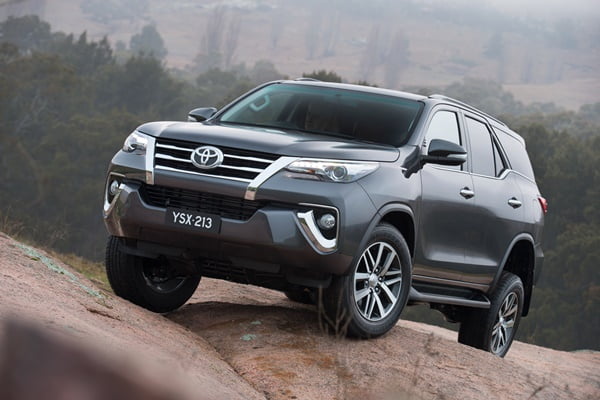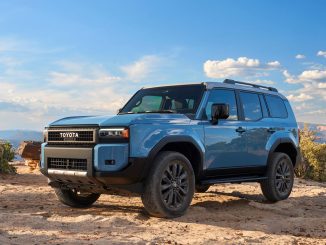Practical Tips – Are you in the market for a new or used vehicle? With the prospect of a new set of wheels hot in your mind, it can be all too easy to find yourself getting ferried away in daydreams.
And it’s exactly this excitement which may leave you vulnerable to forgetting some of the finer logistical details or housekeeping tasks that’ll need to be ticked off whenever you buy a new car, be it fresh off the factory line or with just one or two previous owners.
Amidst all the anticipation, it’s important to keep in mind that a brand new car is a significant investment – so it’s worth approaching this big ticket purchase with caution and consideration.
To help, we’ve compiled our top practical tips to follow when shopping for a car at an auto dealership. Continue reading so you can make an informed purchasing decision and can drive off the lot with greater confidence.
Take out insurance before you hit the road
You’ll want to purchase comprehensive car insurance before you take possession of your brand new vehicle. This particular type of car insurance is vital for those looking to cover themselves not only in the event that they’re at fault in an auto collision or road accident, but also to cover any damages to their vehicle if these incidents do occur.
There are plenty of horror stories out there that involve new car owners driving their vehicle off the lot in sheer excitement, only to find themselves in an auto collision in the mere weeks following their initial purchase. Don’t be another statistic here – secure comprehensive car insurance cover as soon as possible to ensure that your new vehicle is well-protected in the event of a motorway accident or a hit and run.
We recommend gathering up some insurance quotes for the make and model of your vehicle before arranging to collect it from your auto dealership. This way, you know you’re covered if anything goes wrong when driving the car home. Accidents can and do happen, so a comprehensive policy is best as it will cover you even if you’re at fault. A decent insurance policy will also cover you for windshield damage and have bonus features like hire cars and taxi vouchers to keep you moving while your vehicle gets repaired.
Consider your finance options prior to purchasing
If you’re financing your new car purchase through securing a car loan with a bank or other non-bank lender, you’ll naturally want to explore all the potential loan options that are available to you. Be warned that some car salespeople will pressure you into obtaining your finance from the dealership. Whilst some of these finance options may be good value at select sales periods during the year, more often than not these finance deals can often have hidden fees and high-interest rates baked into them.
With this in mind, it’s imperative that car shoppers spend some time researching possible lenders alongside researching what kinds of vehicles they’re looking to invest in. It’s also a good rule of thumb to use the online calculators to figure out how much your repayments will be and the total interest payable throughout all of your shortlisted car loans. Consider using a loan comparison tool to find a great deal. Or, if you have a mortgage broker, talk to them about brokering a car loan, as they may have some excellent options that will suit your needs as well. Remember, it never hurts to shop around!
Check the ANCAP safety rating of your new vehicle
When shopping for a new or used car, you should always check the ANCAP safety rating of the vehicle prior to purchase – especially if you’re looking for a family car. This unique rating is designed to measure how well a car will protect the driver and passengers seated in your vehicle cabin in the event of an accident.
ANCAP safety ratings also take into consideration the number of airbags installed as well as the positioning of airbags throughout your vehicle. Other modern safety features are also considered. This includes features like reversing cameras, automated braking systems (ABS), and lane drift detection.
You can expect most new cars to have a five-star rating as standard, but some older models may have a lower rating. This is precisely why it’s worth looking into the ANCAP safety rating for all the vehicles that have piqued your interest prior to booking a test drive or two at your local auto dealership.
Assess the fuel efficiency of your new vehicle
Aside from the purchase price and insurance cost, fuel is usually the most expensive aspect of owning a motor vehicle. Filling up can hit the hip pocket pretty hard, especially if the vehicle has poor fuel economy or fuel consumption. So it’s well worth doing a little background research into all your shortlisted vehicles to ensure that your new car has respectable fuel economy.
As you may have guessed, fuel economy is a rating of how much fuel a vehicle consumes per 100 kilometres travelled. A low consumption per 100km is ideal for most people. After all, saving money at the pump means that you can enjoy dozens of extra dollars going back into your weekly budget.
We recommend looking for new or used vehicles with decent fuel efficiency. Be sure to also pay attention to the manufacturers’ claims about fuel consumption, and how these may differ to reviews and driver opinions. Internet message boards like Whirlpool or discussion platforms like Reddit will often contain anecdotal evidence of fuel consumption for the vehicles on your shortlist.
Read up on your manufacturer warranty
Finally, one of the foremost benefits of buying new vehicles is being able to enjoy an intact manufacturer’s warranty on your purchase. And with more modern car manufacturers offering longer warranties (we’re talking over 5 years) on brand new cars, it’s all the more reason to buy new and with an auto dealer rather than purchasing second hand.
But remember that not all manufacturer warranties are equal, and that not all performance concerns are covered by standard manufacturer warranties. With these points in mind, it’s essential that you read the fine print on the manufacturer warranties on offer for all you shortlisted vehicles prior to finalising your purchase. And once again, taking out comprehensive car insurance can help cover other aspects of repairing your car that may not be covered by your standard manufacturer’s warranty.




